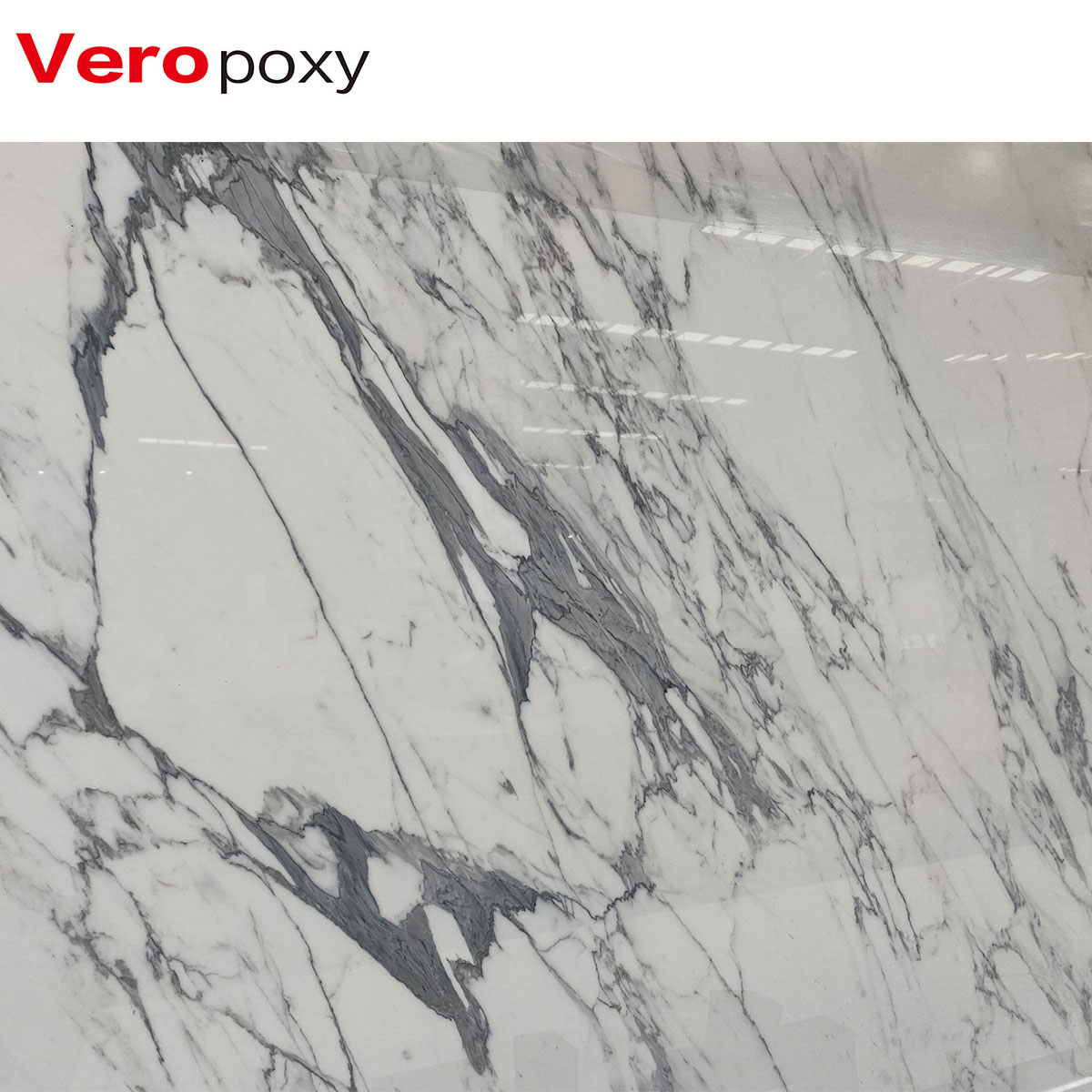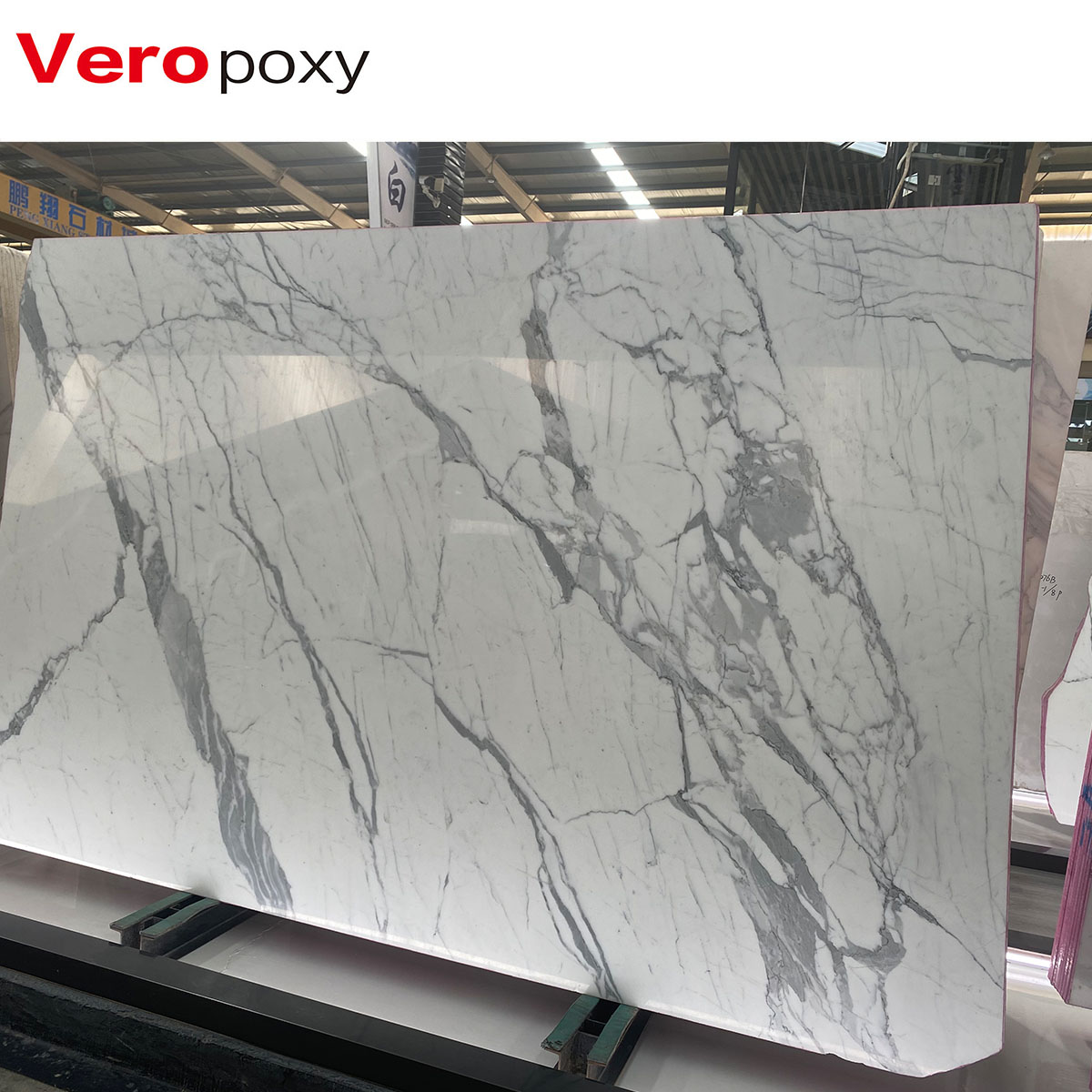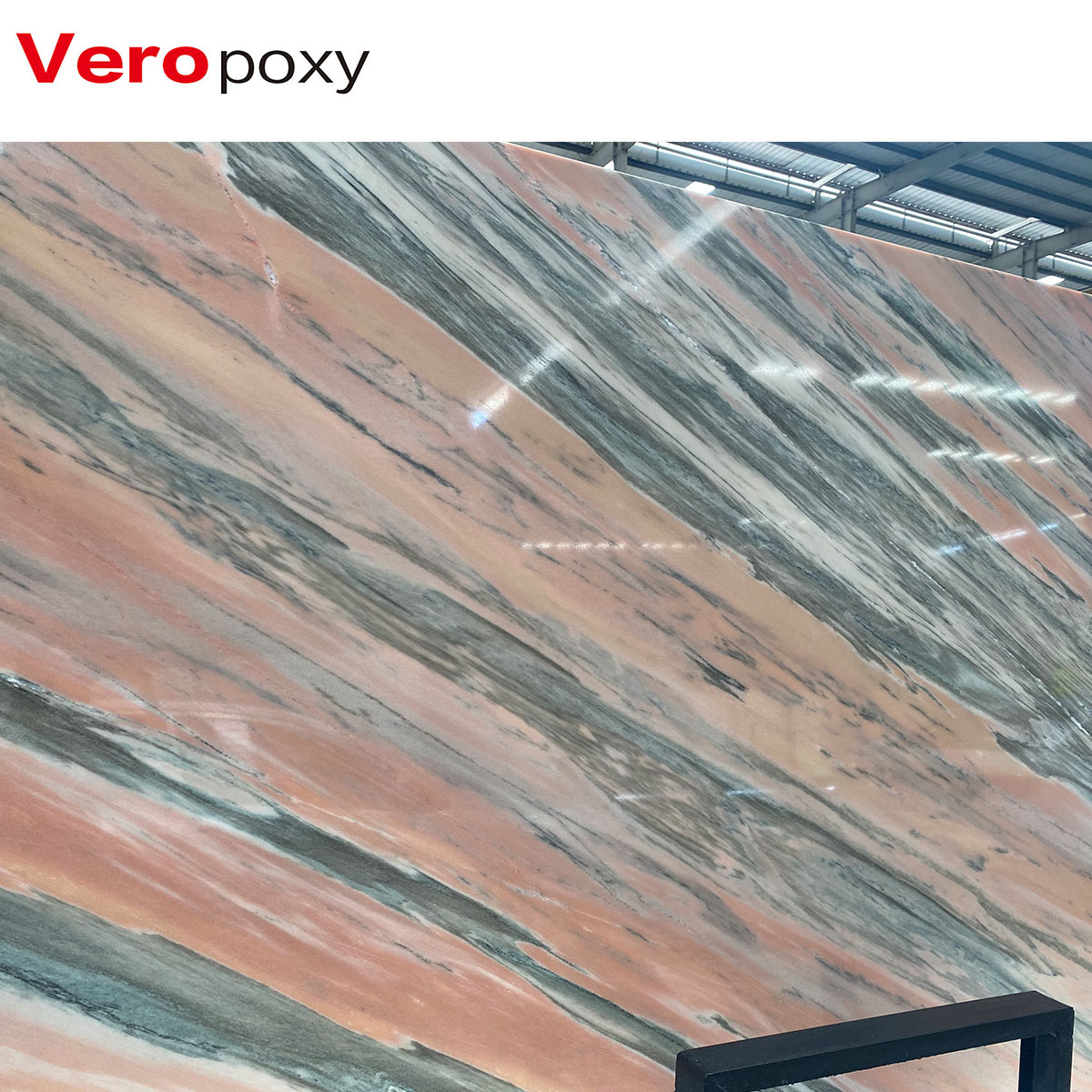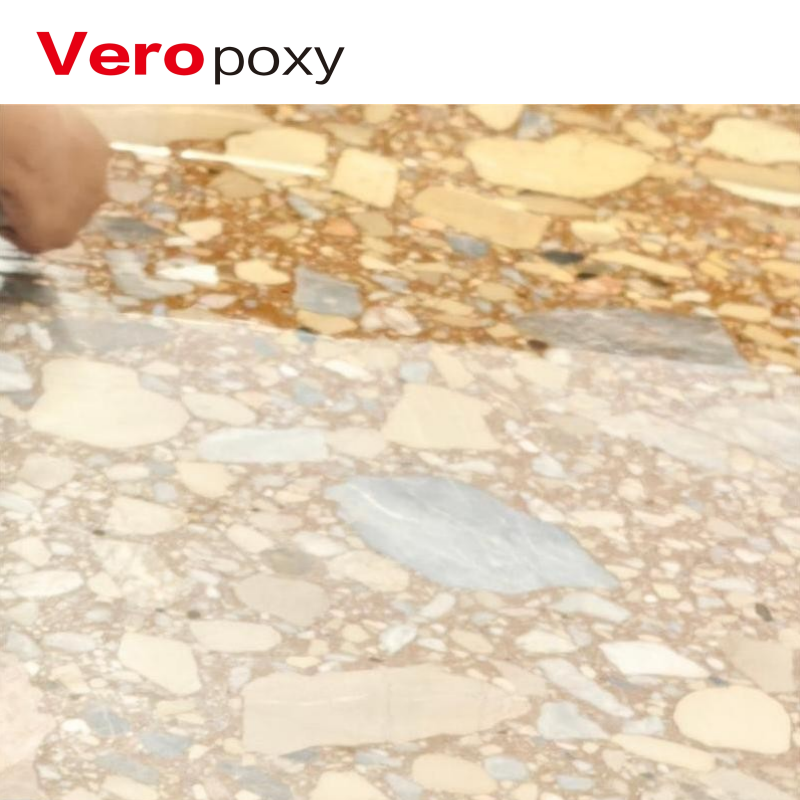Epoxy resin Reinforced Marble Slab Protection

- Feature: Epoxy Resin for hard white Marble
- Applicable material: Calacatte , Stuario, Carrara White
- Epoxy system code: 5099-YC +D30M-BS
- Epoxy system ratio by weight: 100:30
- Curing effect: Forms a liquid sealing layer
Overview
Epoxy resin, a two-component glue, is commonly used in marble surface treatment and restoration due to its ability to close flaws, enhance anti-fouling capacity, and increase marble’s service lifetime. Its high adhesion and smooth, easy-to-clean surface make it suitable for high-end decoration and residential settings.
Product Description
Product Description
Comprising epoxy resin (component A) and modified amine curing agent (component B), this two-component glue is Epoxy resin’s great qualities make it rather common in marble surface treatment and restoration. It can efficiently close flaws and fissures on the marble surface, so enhancing the anti-fouling capacity and wear resistance of marble. Apart from that, the glue has high adhesion, can keep steady performance in different surroundings, stops moisture and dirt from getting in, and increases marble’s service lifetime. The smooth and easy-to-clean treated marble surface greatly enhances the general beauty and fits for high-end decoration and residential setting.
Product Features:
| Feature | Epoxy Resin for hard white Marble |
| Applicable material | Calacatte , Stuario, Carrara White |
| Epoxy system code | 5099-YC +D30M-BS |
| Epoxy system ratio by weight | 100:30 |
| Curing effect | Forms a liquid sealing layer |
| Durability | High stability and long-lasting after curing,good yellowing resistance , low viscosity , strong Bonding |
| Ease of Use | Easy to mix and apply, no special tools required |
Product attributes:
Origin: China
Main raw material: epoxy resin
Application: construction
Name: epoxy adhesive
Classification: two-component adhesive
Brand: Veropoxy
Shelf Life: 12 months when unopened.
High efficiency and cost-effectiveness
Although Epoxy resin has excellent performance, its price remains at a relatively reasonable level among similar high-quality products, providing users with a cost-effective choice. Compared with higher-priced professional adhesives, it not only has superior performance, but also has a more competitive cost, making it very suitable for large-scale use.
How to use
When using Epoxy resin, first clean the surface to be bonded to ensure that there are no impurities such as dust and grease. Then mix component A and component B in proportion (100:25), stir evenly, and then apply to the surface to be bonded. Then, align and press the two pieces of material, let it stand for several hours, and let the adhesive completely cure to obtain a stable bonding effect.
Precautions
When using Epoxy resin, be careful to avoid direct contact with skin and eyes, and keep the workplace well ventilated. After use, the remaining adhesive should be sealed in time to prevent air from entering and causing curing failure. At the same time, mix strictly according to the proportion to ensure the best bonding effect.

Store epoxy resin
Stored in a dry, cold, well-ventilated room, epoxy resin should avoid direct sunlight and high temperature environment. Usually ranging from 15 to 25 degrees Celsius, the suitable storage temperature controls the relative humidity between 40 and 60%.
Stored in corrosion-resistant, well-sealed containers, epoxy resin should prevent coming into touch with moisture, air, or other materials. Safety signs with flammable, poisonous, and corrosive warnings should be obviously visible in the storage area.
Since epoxy glue is combustible, storage of it should take fire prevention into account. To stop fire, store epoxy glue far from combustible objects or fire sources.
Steer clear of sunlight since long-term epoxy resin performance and quality will suffer. Epoxy glue ought so to be kept dark and away from direct sunshine.
Usually with a fixed shelf life, epoxy resin may operate differently if the shelf life runs out. Thus, you should look at the shelf life of epoxy resin and aim to use it within this range before usage.
Usually packed in sealed containers, epoxy resins should be sealed; so, unused resin should be kept in sealed containers. Make sure the container is tightly sealed following package opening so the resin does not absorb moisture or cure from contact with air.







